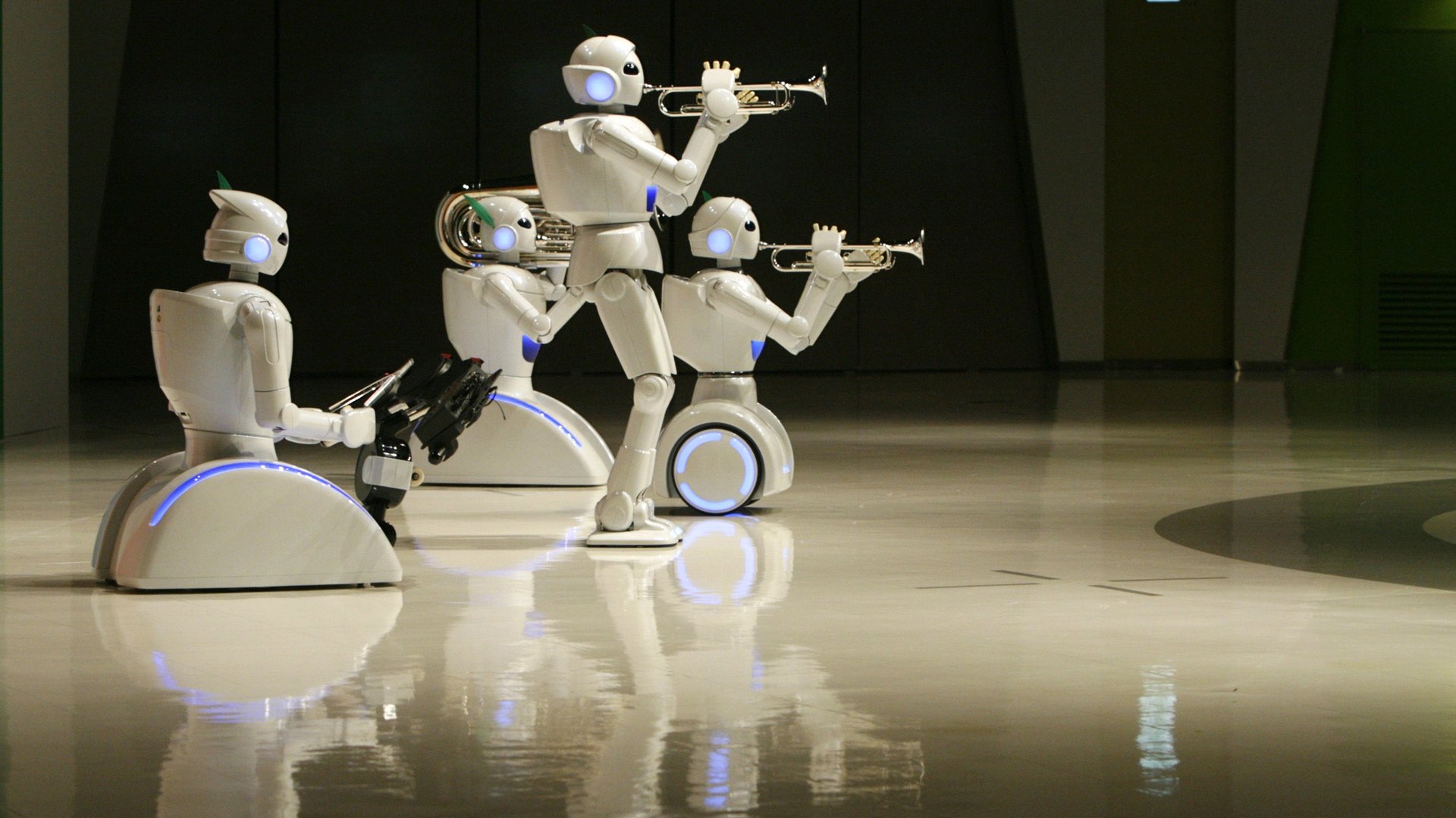How AI will impact the future of work, as explained by pop music
Artificial intelligence will take away a lot of people’s jobs, forcing them to find something else to do. Things won’t necessarily stay the same for everybody else, either. One way to see this is to consider how AI affects people who write music.


Artificial intelligence will take away a lot of people’s jobs, forcing them to find something else to do. Things won’t necessarily stay the same for everybody else, either. One way to see this is to consider how AI affects people who write music.
Pop musician Taryn Southern composed and produced her upcoming album, I am AI, with artificial intelligence. Southern used four different AI music composition tools—AIVA, Amper Music, Google’s Magenta, and IBM’s Watson Beat. It would be difficult to distinguish the album’s first single, “Break Free“, from most songs on the pop charts. (Though Southern is clearly a technology enthusiast, the song is in fact an anthem about getting away from social media.)
What does making an album with AI actually entail? Did Southern just push a button and then a bunch of songs just magically appeared? Hardly. It is a much more involved, iterative process. In working with AI, Southern has gone from a pure composer to part-composer, part-editor. You might experience a similar change in your job in the not-so-distant future (if you haven’t already).
To start a composition, Southern might tell the AI tool, based on the options available, that she wanted a song in a certain style (like hip-hop), at a certain tempo, and in a specific musical key. The tool then spits out some music. That original AI composition, according to Southern, is usually pretty bad.
Southern takes the music that AI creates and spends countless hours tweaking it. For example, she might adjust the tempo or change the instrumentation. She then feeds her changes back into the AI tool, which provides new suggestions. The cycle continues until she is satisfied with the result.
Southern says the major benefit of using AI is that it provides musical inspiration. It may make a lot of bad suggestions, but it also sometimes makes exciting and original ones that push a songwriter into new territory. (Not unlike a hungover bass player, but without all the drama.)
“The way I liken the songwriting process with Amper, or with many of these tools, is that you become more of an editor or a director rather than a composer,” Souther explained on a recent episode of the podcast Switched on Pop. “You are basically given a ton of raw material, and it is your job to shape that material… into something interesting.”
Southern’s experience is illustrative. As AI continues to improve, it will work its way into the routines of all sorts of jobs. In fields like medicine, cooking, writing and data visualization, AI tools already offer valuable suggestions for a variety of tasks. But very few tools can feasibly “work” without some human guidance. Like Southern, we will all have to become better editors, in a sense.
That said, some AI tools may, eventually, work better without human judgment. For example, while chess-playing AI tools used to benefit from human intervention, that is no longer the case. But in most areas, the technology is far away from replacing people entirely.
My personal experience with the Hemingway App, an AI tool to improve writing, bears this out. The tool makes many useful suggestions, but it would be a terrible idea to accept all of its recommendations. It frequently misunderstands context, and proposes changes that would alter the underlying meaning of sentences. Overall, though, it is a handy tool that can help writers do their jobs better.
In general, as AI permeates more aspects of our jobs, the people who will benefit most are the ones who figure out how best to harness the technology.